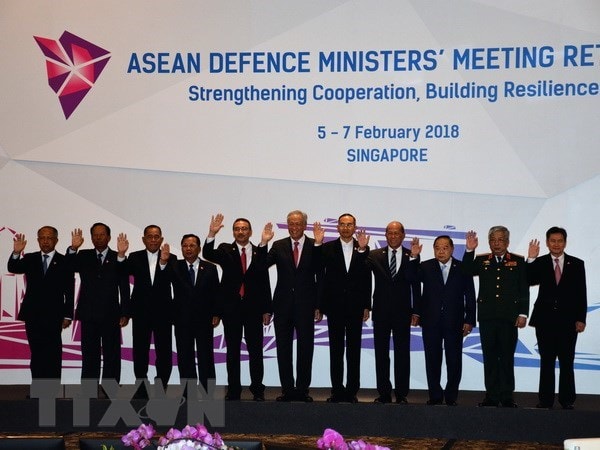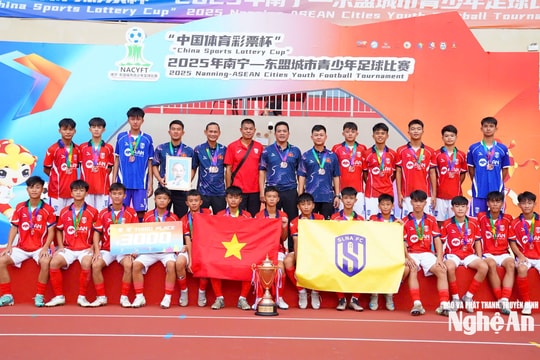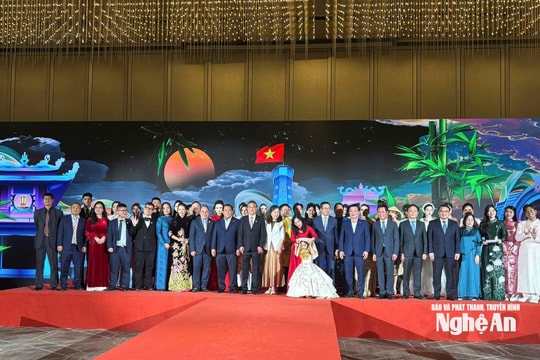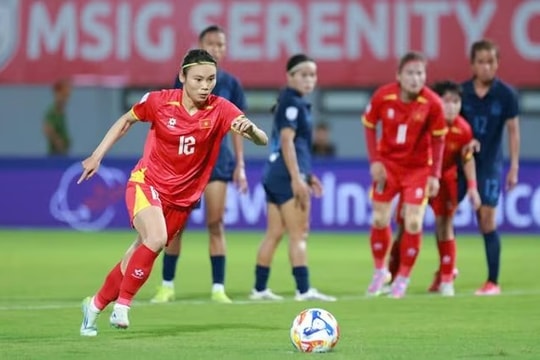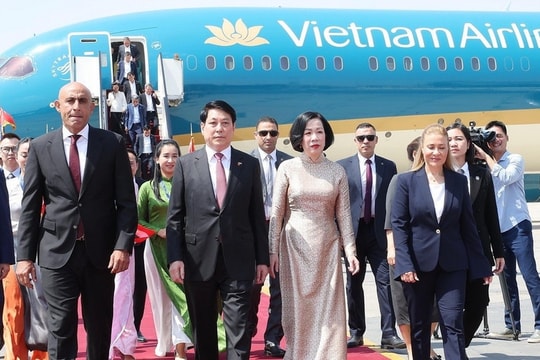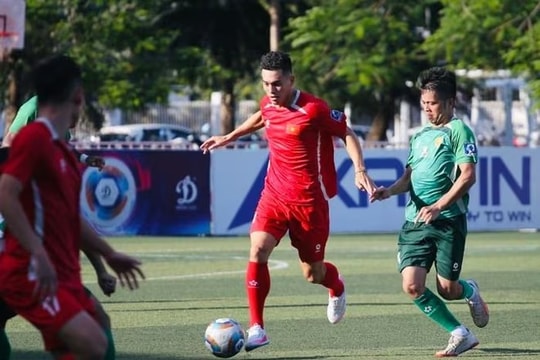Highlight of the day: Towards a resilient and innovative ASEAN
The ASEAN Foreign Ministers' Retreat and the ASEAN Defense Ministers' Retreat in Singapore concluded with basic contents identifying the priority focus of ASEAN cooperation in 2018.
The ASEAN Foreign Ministers' Meeting (AMM Retreat) and the ASEAN Defense Ministers' Meeting (ADMM Retreat) in Singapore concluded with basic contents defining the priority focus of ASEAN cooperation in 2018, orientation of ASEAN's foreign relations, strengthening ASEAN's central role in regional processes and discussing regional and international issues of mutual concern.
These are the first ASEAN ministerial conferences chaired by Singapore in 2018, the third year of implementing the ASEAN Community.
At the AMM Retreat, the ministers highly agreed with the theme of ASEAN 2018, which is to build a "resilient and innovative ASEAN," emphasizing the need to enhance the region's resilience in all aspects, both in political-security and economic-trade cooperation, to enhance solidarity and ASEAN's central role.
Countries believe that it is necessary to take advantage of the opportunities of the Fourth Industrial Revolution, propose timely and creative solutions, both effectively responding to challenges and enhancing ASEAN solidarity and self-reliance.
Accordingly, the ministers recommended that senior leaders adopt the ASEAN Leaders' Vision Statement on a Resilient and Innovative ASEAN drafted by ASEAN Chair Singapore, and the Leaders' Statement on Cyber Security Cooperation.
In the document, Singapore has put forward 10 basic principles including "unity and focus," "rules-based guidance" and "capturing technology," along with 30 priority areas requiring ASEAN leaders to make specific commitments.
Priority areas include promoting an extradition treaty among ASEAN countries to combat transnational crimes, persuading China to sign the Code of Conduct of Parties in the South China Sea (COC), establishing a network of ASEAN smart cities or launching initiatives to combat terrorism and radicalization.
The Singapore-drafted document also addresses a range of challenges facing ASEAN countries, including growing uncertainty in the global strategic landscape, violence stemming from extremism, climate change and maritime issues. All of these issues are addressed by Singapore in the seven-page document, which aims to create an ASEAN that is strong enough to “face challenges in a spirit of cooperation, unity and efficiency.”
Meanwhile, the ADMM Retreat focused on discussing terrorist threats in the region and Singapore. As the country taking on the role of ASEAN Chair 2018, Singapore promotes enhanced counter-terrorism cooperation among members through new and innovative solutions. In particular, Singapore will focus on three main areas, including promoting regional counter-terrorism cooperation; increasing the ability to combat chemical and biological threats; and building trust in the aviation and maritime sectors.
According to analysts, as ASEAN Chair, Singapore is in a unique position to be able to move the region towards deeper cooperation. To date, Singapore is the most developed country in Southeast Asia with a lot of potential and influence. As a founding member of ASEAN, Singapore plays a role as a pillar to maintain ASEAN, contributing significantly to the efforts to help the bloc stand firm in times of crisis over the past 5 decades.
This is due in part to the Singapore leadership's unwavering commitment to ASEAN's prosperity, supported by a group of talented diplomats who have repeatedly demonstrated their ability to effectively manage regional disagreements.
These factors put the new ASEAN Chair in a unique position to steer the region towards deeper cooperation. The theme “Resilient and Innovative ASEAN” that Singapore has chosen for its 2018 Chairmanship sums up the priorities of the Lion Island nation’s politicians.
Previously, Prime Minister Lee Hsien Loong affirmed that the country's priorities when Singapore assumed the rotating chairmanship of ASEAN last November were to promote a rules-based order in Asia and more effectively address security challenges, both traditional and emerging, in the region.
Singapore will also step up negotiations and ongoing projects to boost connectivity between economies, with the goal of establishing an ASEAN market within the next decade. Not only that, this leader affirmed that in his new position, Singapore will strive to further strengthen regional cooperation in counter-terrorism, especially in the face of threats from groups affiliated with the self-proclaimed Islamic State (IS).
These efforts could be realized through measures such as increased intelligence sharing, joint border patrols, coordinated monitoring and interdiction of illicit financial transactions or terrorist activities, counterterrorism training, and provision of advanced equipment to less developed countries in the region.
ASEAN operates on a consensus-based mechanism, but the country holding the rotating chairmanship has the “privilege” to orient the goals and direction of sensitive regional discussions. With the position rotating from one member country to another each year, the ASEAN Chair has the right to veto statements it deems unfavorable to regional interests, or to unilaterally issue a “chairman’s statement” in the event of irreconcilable disagreements between member countries. The Chair also has significant influence in shaping regional multilateral agreements./.

